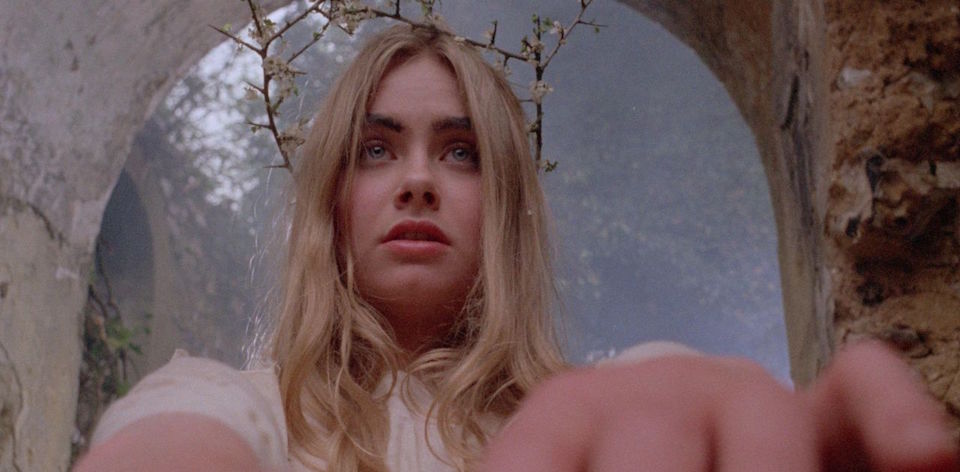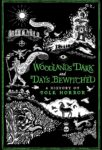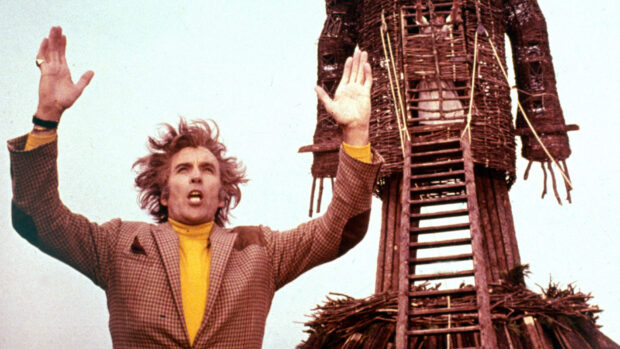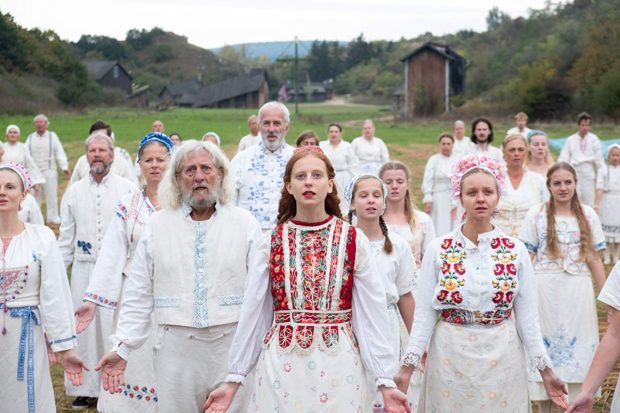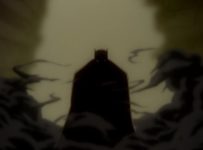Folk horror is having a bit of a revival at the moment. If that seems odd to you, then look no further than the recent successes of Midsommar and the Pet Sematary remake. Yet the tradition of folk horror is as deep as the land from which it draws its power, something horror expert, writer and festival curator Kier-La Janisse explores in her debut film.
“Folk horror,” explains the first of many voices we hear throughout the film, “is based upon the juxtaposition of the prosaic and the uncanny.” It’s the intrusion of old religions in the modern world but often the other way around. It’s “strange things found in fields,” as well as the “Devil having a cup of tea with you.”
Few stones, bubbling brooks or hollowed out trees are left unturned in this comprehensive examination of one of the most enduring genres in horror films and literature. Taking just over three hours, Janisse guides us through the origins of folk horror films, from the more common British folk horror of the 60s and 70s through to more recent examples from around the world.
Starting with what Jonathan Rigby terms the Unholy Trinity of folk horror — being Witchfinder General, Blood on Satan’s Claw and, of course, The Wicker Man — the film draws out the threads of old religion and aristocratic corruption found in each. Robert Eggers (The Witch) argues that there are more tropes out of Britain than anywhere, as he and fellow commentators hold up Algernon Blackwood, M.R. James and the film adaptations of director Lawrence Gordon Clark (A Ghost Story for Christmas) as seminal creators in the space.
So pervasive are the elements of folk horror in Britain, they bleed out of fiction and into the everyday. There’s David Greene’s serial killer thriller I Start Counting (1970) starring Jenny Agutter, for example, which is not as overtly about spirits or witches. There’s a compelling argument that David Gladwell’s documentary Requiem for Village (1975), in which a Suffolk churchyard keeper laments some lost from the rural past, also gets to the core of this tradition.
“We don’t go back. It’s the fundamental tension of folk horror.”
Juxtaposed with scenes from Quatermass and the Pit (“It’s in the computer!”) and Doctor Who‘s ‘The Daemons’ episode, Janisse draws a line through to the likes of Ben Wheatley’s Kill List (2011) and Prevenge (2016). A large chunk is also spent on witchcraft and American traditions, examining Puritans and the ontological status of indigenous peoples in many of those films. The pervasive trope of the ‘Indian burial ground’ (like in The Shining) can only be eroded when more films from First Nations filmmakers (such as 2018’s Edge of the Knife) come to the fore.
In addition to the complex history of American fiction — which incorporates everything from Children of the Corn and The Wind‘s prairie horror to the urban folk legends of Candyman — the exhaustive analysis includes films from Japan (Shikoku, Onibaba, Kuroneko and Kwaidan to name a few), Brazil, and South Africa, as well as a fairly deep look at Australia’s rich horror history. Critic Alexandra Heller-Nicholas discusses The Last Wave (1977), Lake Mungo (2000) and Tracey Moffat’s BeDevil (1993) to find connections between invasion, colonisation and place-based stories in Australian folk horror.
By the end of the picture, WOODLANDS DARK AND DAYS BEWITCHED: A HISTORY OF FOLK HORROR (to use its full title) makes a convincing case as to why this particular genre continues to have its day. “You bring your horror in with you,” remarks one pundit in the final moments, citing parallels between our own traumatic times and a fear of the future with the golden era of the genre in Britain’s 1970s. After a year of a pandemic, political turmoil and murder hornets, it’s hard to disagree.
2021 | USA | DIRECTOR: Kier-La Janisse | WRITERS: Kier-La Janisse | CAST: Robert Eggers, Alice Lowe, Emma Tammi, Mattie Do, Kevin Kölsch, Dennis Widmyer, Alexandra Heller-Nicholas | DISTRIBUTOR: Severin Films, SXSW 2021 | RUNNING TIME: 193 minutes | RELEASE DATE: 16-20 March 2021 (USA)

